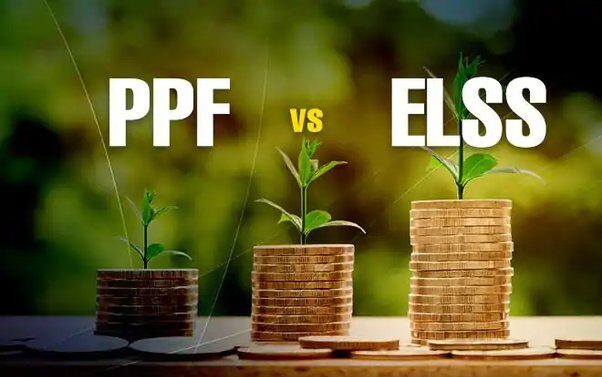Saving tax while investing your hard-earned money is always wise. As an investor, you can choose from multiple tax-saving instruments available in the market. However, determining which option suits you the best based on your investment and risk appetite can be challenging. Equity-linked saving schemes (ELSS) and the Public Provident Fund (PPF) are two popular tax-saving options in India with the potential for wealth creation over the long run. Before choosing between ELSS and PPF, you need to understand their benefits, risks, and returns. Read on to find out more.
What is ELSS fund?
Equity Linked Savings Schemes (ELSS) are a type of mutual fund that predominantly invest in equities. These funds offer tax benefits under Section 80C of the Income Tax Act. ELSS funds come with a lock-in period of 3 years, which is shortest among all tax-saving instruments under Section 80C.
What is PPF fund?
The Public Provident Fund (PPF) is a government-backed savings scheme designed to encourage long-term savings among individuals. PPF offers attractive interest rates compared to other non-market linked investments. They come with a a lock-in period of 15 years. Similar to ELSS investments, PPF also qualify for a deduction of up to Rs. 1.5 lakh under Section 80C. Additionally, the interest earned, and the maturity amount are tax-free. PPF offers fixed, tax-free returns, providing an investor’s portfolio stability.
Which is better to invest in – ELSS funds or PPF funds?
- Risk appetite: ELSS funds invests in equities and are market linked. On the other hand, PPF come with a fixed interest rate, which the government declares every year. Hence, if you have a higher risk appetite and are willing to stomach market fluctuations for potentially higher returns, ELSS funds might be the right fit. However, if you prefer a more stable and secure investment option, PPF could be the better choice.
- Time horizon: With their three-year lock-in period, ELSS funds are suitable for those with a comparatively shorter time frame. On the other hand, PPF, with its 15-year tenure, is ideal for individuals with a longer-term perspective.
- Tax considerations: Both ELSS and PPF offer tax benefits, but the nature of these benefits differs. The amount invested in both ELSS and PPF are eligible for tax deduction under section 80C of the income tax act. ELSS returns enjoy the benefits of long-term capital gains, including tax-free returns of up to Rs.1 lakh. At the same time, the interest earned and the returns are not taxable under Income Tax for PPF.
To wrap up
Both ELSS and PPF are excellent investment options for long-term wealth creation. However, you need to evaluate your priorities and risk appetite to determine which instrument suits you better. With the right investment plan in place, you can achieve your life goals and secure your financial future.

